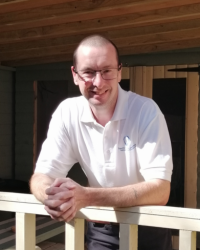Understanding (and breaking) the pattern of anxiety
I understand that for many of you, talking about your anxiety isn't always easy. Sometimes it can feel difficult to explain what’s going on, like you're the only one who understands. Likewise, people often struggle to know what to say to someone who they’re worried about.

Anxiety affects millions of people each year, often it’s the case that people have never experienced any kind of mental health problem before and it’s a complete shock to them that it happened to them. There can be many issues going on in someone’s life that trigger mental health issues, not just anxiety. Just search on the internet to discover the numbers involved.
I’ve seen literally thousands of clients for issues with anxiety and currently around 60 - 70% of enquiries I receive on a weekly basis are anxiety or mental health related.
It can affect all areas of people’s lives from sleeping issues, social, health, hygiene to general feelings of anxiety. It can stop someone from living a fulfilling life and doing what people consider everyday normal things like going out to meet friends for a meal or even to the extremes of agoraphobia where a person can’t leave their home (so they become a prisoner in their own home).
Let's say that anxiety is anxiety but it affects people in different situations, so we get different labels of anxiety such as social anxiety, but the same thing is happening within the body and mind.
The brain goes into freeze, fight or flight mode.
Anxiety is all about anticipation, it's about what could happen in the future. People always ask the "what if?" question.
People are basically anticipating an issue or problem in the future so you are trying to predict the future which to my knowledge no one can actually do, even if they claim to be able to.
However, there is a pattern to anxiety and panic attacks, just like most behaviours it can’t just happen on its own! Often these behaviours are unconscious (automatic), so the key is to uncover and understand what is happening.
We all talk to ourselves however do you actually listen to what you're telling yourself or just let it carry on as normal?
Here is some useful information about how the "process" anxiety works:
The first stage is the stimulus.
The stimulus is the trigger.
The second stage is the cognition.
This is where the brain goes in and finds how it's reacted before to the similar situation. Imagine your brain like a filing cabinet and one of those files contains all the information about how to react to a certain stimulus.
The third stage is emotion.
Imagine emotion being like a spark in your brain which then makes changes in your body.
The fourth stage is feelings.
When you experience an emotion this sends a signal to your nervous system and this creates feelings in your body.

The key to making a change in behaviour is to recognise the patterns of thoughts, emotions and behaviour and interrupt them. When we interrupt the pattern of thinking, for example when the mind goes into a freeze phrase, at this point it is waiting for some direction or commands to follow. So you need to implement some better, new suggestions for your mind to act upon.
Your mind needs direction, discipline, rules and boundaries and is always listening for new information to act on to become new cognitions in your brain like described above.
What are you telling yourself or picturing in your mind, internally or externally? When you are telling yourself negative things, what tone and pace are you using, high or low, fast or slow?
Remember everything you tell yourself is a direct command to your brain, now what would you do differently knowing that?
Try slowing this internal dialogue right down and slowing it down two or four times as much, what difference does that make? By slowing it down or changing it in some way you won’t be able to get the same reaction that you used to get. How interesting is that?
Another area is body language. Notice how you are sat or stood and change it in some way, stand up tall or do a little silly dance to break that pattern, what difference does that make? Sounds silly but it works!
I hope this has been useful in you starting to understand how and why anxiety happens. If you need any help please contact me for a free no obligation consultation to find out how I can help you get back on the right track.

Find a hypnotherapist dealing with Anxiety
All therapists are verified professionals






